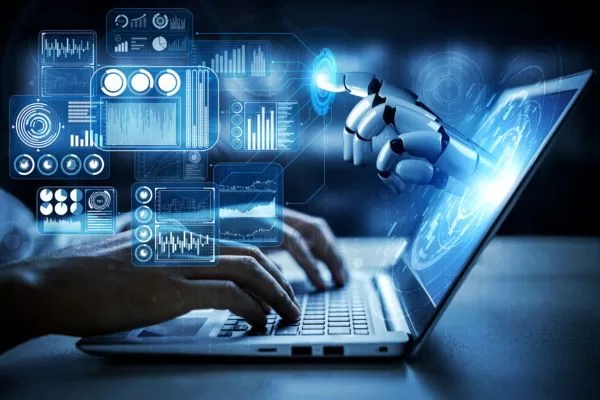Insights
AI For Market Research: Revolutionizing The Digital Age In 2025!
On Digitals
27/11/2025
23
AI for market research is transforming how businesses collect, interpret, and leverage data for strategic growth. By combining machine learning with market research AI, companies can uncover deeper insights into customer behavior and market trends. With powerful predictive capabilities, AI enables brands to make faster, smarter, and more confident decisions.
The meaning of market research
Market research is a vital, data-driven process that helps businesses evaluate the potential of new products or services while strengthening overall brand appeal. By combining traditional methods with market research AI, businesses can uncover deeper insights faster. It provides essential insights into customer preferences and behaviors, gathers valuable market information, and analyzes feedback in depth.
These insights create a strong strategic foundation, enabling brands to overcome marketing challenges with confidence and drive innovation and long-term success. AI for market research can complement these traditional approaches, enabling faster insights and more accurate analysis. Market research generally includes two main approaches:
Primary research
This involves collecting original data using both qualitative and quantitative methods. AI for market research can enhance primary research by automating survey analysis and extracting patterns from responses. Businesses directly engage with customers through surveys, interviews, and questionnaires to gather fresh insights. Primary research can be classified into two main types:
- Exploratory research: Uses open-ended questions and small sample groups to uncover underlying motivations, surface new ideas, and gather preliminary insights.
- Specific research: Focuses on solving problems or answering questions identified during exploratory research, delivering clear, targeted results.
Secondary research
In this stage, businesses analyze data gathered from external sources such as government publications, industry reports, media articles, research studies, and other publicly available materials. AI for market research helps process secondary data efficiently, identifying trends and insights that may be overlooked manually. This existing information adds valuable context and strengthens the insights derived from primary research.
Together, primary and secondary research provide a holistic understanding of the market, empowering businesses to make informed decisions and craft marketing strategies that align closely with the needs and expectations of their target audience.

Market research uncovers customer behavior, preferences, and market opportunities
Why AI matters in market research
AI for market research blends Machine Learning (ML) with traditional research methods like interviews, discussions, and surveys, creating a more powerful and efficient process. By collecting and analyzing data in real time, AI can identify emerging patterns, forecast trends, and detect subtle market shifts that might otherwise go unnoticed. This leads to clearer, more current insights that help businesses stay aligned with consumer behavior.
For example, a health and fitness brand can use a tailored AI model to monitor online conversations surrounding wellness habits, consumer needs, and competitor’s products. The insights gathered give the team a solid foundation for developing new product concepts and shaping marketing strategies that truly match market expectations. This approach not only streamlines the research workflow but also supports more strategic, evidence-based decisions, ultimately increasing the likelihood of delivering products and campaigns that connect with the right audience.

AI enhances market research by revealing trends and consumer patterns
8 applications of AI in market research
AI-powered market research offers multiple ways to streamline data collection, analysis, and trend identification. Businesses can leverage AI for market research in various ways, from data crunching to intelligent trend analysis. Here are some useful applications for AI that marketers should be focused on:
Data crunch
The majority of the market research process entails collecting intricate data and arranging it for simple analysis. With market analysis AI, this process becomes faster and more precise. The speed at which AI can aggregate data is almost immediate, in contrast to the laborious nature of traditional methods for gathering massive amounts of data.
Depending on your needs, you can use AI to locate external data, such as keywords for search engine optimization, or use AI to arrange pre-existing internal data, such as employee surveys.
For example, Crayon, an AI competitive analysis tool, compares a user’s data to information from job ads, social media, and competitor website insights that would be difficult and time-consuming to obtain manually.
Determine customer sentiment
Using AI for market research, companies can gauge customer sentiment in real time, improving product and service strategies. AI-powered natural language processing can analyze reviews, comments, and customer service conversations on social media to determine how people feel about your products and services. Using AI in consumer research, companies can gauge customer sentiment in real time.
These customer insights give you a clear picture of how your target audience feels, enabling you to see what works and where you can make improvements. An AI technology called Insight7, for instance, examines videos, phone conversations, and interviews to gather consumer sentiment and identify problems, preferences, and behaviors that may be used to improve customer experience workflows and products.
Tailor your marketing strategies
AI for market research enables marketers to tailor campaigns based on data-driven insights, increasing engagement and ROI. AI solutions give marketing teams additional insights for creating successful advertisements and promotions by utilizing consumer behavior, customer data, and predictive analytics. With AI, you can customize marketing tactics to target particular consumer tastes and trends that would be challenging to identify without it.
For instance, the market research tool “Quantilope” uses surveys for automated A/B testing, a comparison of items to determine which ones are likely to sell and which ads may connect with your target audience.
Listening on social media
AI for market research provides social listening capabilities that reveal emerging trends and consumer concerns across platforms. Because they continuously monitor social media in real time, AI tools provide valuable insights. These capabilities are examples of market intelligence AI, tracking trends, brand mentions, and customer preferences.
Let’s take the scenario of a multinational tech corporation releasing a new smartphone. They use AI-driven social media listening technologies to keep an eye on conversations on smartphones on Facebook, Instagram, Twitter, and other sites. Conversations regarding the newest smartphone models, brand preferences of the company, and pertinent current themes are automatically detected by the technologies.
Conversational AI: Virtual assistants and chatbots
By incorporating AI for market research, chatbots can collect customer feedback and preferences efficiently at scale. AI-powered chatbots and virtual assistants are becoming essential for conducting market research, interacting with customers, collecting information, and making tailored recommendations. These conversational solutions allow businesses to gather data at scale and improve consumer engagement by conducting surveys, responding to questions, and extracting insightful information.
Tools like ChatGPT illustrate ChatGPT’s market research capabilities. For example, chatbots are useful in the e-commerce industry. They can increase consumer interaction, provide 24/7 support, and make tailored product suggestions. This demonstrates the potential of these AI-powered conversational tools in the market by increasing sales and improving overall customer happiness.
Demand projections
AI for market research can forecast demand more accurately by analyzing past sales data and predicting consumer behavior. Demand forecasting models based on AI are essential for predicting future demand for goods and services. These AI algorithms examine historical sales data, market trends, outside factors, and even meteorological patterns.
Organizations can optimize inventory, production, and resource allocation thanks to precise forecasting, resulting in lower costs. Additionally, by cutting down on shipping times and guaranteeing sufficient stock availability for popular items, it greatly enhances the consumer experience.
Let’s take a consumer electronics company, for instance. They can examine past sales data and take into account industry trends and outside variables like chip shortages by utilizing AI-based demand forecasting. They are able to successfully balance product demand thanks to this comprehensive analysis. By correctly predicting changes in demand and modifying inventory levels accordingly, they can optimize supply chain and warehouse expenses.
Intelligent analysis of visual media
AI for market research can process visual content to uncover consumer interests, brand exposure, and trending imagery. AI-powered picture and video analysis tools are now essential for market researchers due to the abundance of visual content on social media and other online platforms. These sophisticated systems are able to automatically evaluate and classify visual content, identify objects, situations, and emotions in pictures or movies, and identify brand logos.
Let’s take an example of a tourism business that wants to use AI-powered image and video analysis. By using these tools, the agency may automatically analyze user-generated content uploaded on social media networks. These travel businesses can use this data to find well-liked locations, spot new visual trends, and learn important information about consumer preferences. Equipped with this data, the agencies may improve their marketing tactics by developing focused advertising campaigns that are enhanced with eye-catching images that connect with their target demographic.
Analysis of market trends
AI-powered market trend analysis is crucial for spotting new trends and comprehending how they affect companies. AI algorithms can quickly identify new market trends by evaluating enormous volumes of data from a variety of sources, including news, social media, and industry reports.
Additionally, AI helps companies distinguish between macro (long-term) and micro (short-term) patterns, offering insightful information for strategic adjustment. By anticipating changes in consumer behavior, industry dynamics, and market demands, this thorough study enables firms to improve their strategies and maintain their competitiveness in ever-changing market situations.

AI offers multiple tools to simplify and optimize market research
Key market research tasks you need to explore
Using AI for market research allows businesses to identify segments, assess market size, and understand competitors more efficiently. In this example, the research focuses on a subscription box company offering a curated selection of environmentally friendly, plastic-free, or zero-waste household items such as cleaning products, personal care goods, and kitchen essentials.
The following primary market research tasks will be explored:
Identify market segments to market
Identifying the right audience is the first step in any market research process. A target market consists of potential buyers a business aims to reach, defined by factors such as demographics (age, location, gender, and income) and psychographics (interests, hobbies, and lifestyle). For the subscription box company, this involves pinpointing the key traits of each customer segment and compiling a list of prospective clients.
Assess market size for each segment
The next step is to gauge the size of each market segment to understand how many potential customers exist. This information helps evaluate whether the business could be sustainable – if a segment is too small, it may not be worth pursuing.
It’s not necessary to measure every segment suggested by AI, and there may be additional segments that weren’t identified. This is where human judgment becomes crucial: selecting realistic segments for the business and combining AI insights with personal knowledge and intuition about potential customers.
Determine the competition
Knowing what other goods or services your potential client might be using – this is your competition – is a part of getting to know them. Without a thorough grasp of your competitive environment, no company plan is complete.
Investigate market expansion and trends
Market research has two key goals: understanding customers and gaining a competitive edge. In order to create a profitable business, you must first understand your customers. Second, you may differentiate yourself from the competition and provide something special in the market by using your market research to tailor your business offering.
Boost your market research endeavor with “Deep Research”
Gemini and ChatGPT offer Deep Research as part of their premium programs. Both chatbots will take your inquiry, create a research strategy, conduct a web search, and provide a comprehensive research report when in deep research mode. The findings can be astounding, and the inquiries typically take five to twenty minutes to complete.
It is worthwhile to use these tools for market research work if you have access to them. Compared to simply using the usual chat interface, I’ve found them to be more precise and detailed.

Market research requires structured tasks to uncover insights and segments
AI market research in Indonesia at a glance
AI for market research is increasingly adopted in Indonesia to gain actionable insights and improve digital marketing strategies. As Southeast Asia’s largest economy with a young, tech-savvy population, Indonesia is ideally positioned to leverage AI for market research. Our research shows that Indonesians are already among the most enthusiastic adopters of AI, making the market highly receptive to AI-driven marketing insights and data-backed strategies.
Overview of the Digital marketing in Indonesia
An important contributor to the expansion of digital marketing in emerging economies is Indonesia. By 2023, there will be more than 212.4 million internet users, or 76.8% of the total population. This indicates a significant opportunity for companies to engage with consumers. Since many individuals lack computers, the majority of people utilize smartphones to access the internet.
AI is bringing new trends to Indonesian digital marketing. These include marketing automation, predictive analytics, real-time campaign optimization, and customized experiences. Businesses may improve and personalize their marketing for Indonesian consumers by utilizing AI solutions.
How AI market research impacts Indonesia businesses
By analyzing consumer data, AI enables personalized messaging, content, and product recommendations, which encourages higher engagement and larger purchases. It can also monitor campaign performance and make real-time adjustments, enhancing the effectiveness of digital marketing. Additionally, AI leverages data to forecast future consumer behavior and market trends, helping companies stay ahead and make informed decisions. Beyond this, AI tools streamline social media and email marketing, freeing up time for other essential tasks.
AI is being used by Indonesian businesses to better understand their clients in the modern digital world. They examine a large amount of client data using machine learning and advanced analytics. This includes data from websites, social media, and consumer purchases. They are able to obtain valuable insights and create more accurate client profiles for their marketing strategies as a result.
Brands in Indonesia may now utilize consumer data to predict what consumers would want next thanks to AI personalization. They provide tailored product and content recommendations based on each customer’s preferences and purchases. Because they receive items they truly want, this increases customer engagement and likelihood of purchase.
AI assists marketers in analyzing previous efforts to choose the most successful ones. It provides firms with insights that enhance their marketing by utilizing data from various sources. Additionally, AI gives marketers a competitive advantage by automatically gathering and evaluating data.
Success stories of Indonesian enterprises
Businesses in Indonesia are utilizing AI to achieve remarkable outcomes in the rapidly evolving field of digital marketing. Fashion firms and e-commerce behemoths are demonstrating how AI can alter the game.
AI was employed by Indonesia’s leading e-commerce site, Tokopedia, to provide a human touch. Sales for some items doubled as a result, while product page visits increased by 67%. Social media celebrities and the Indonesian apparel company Erigo collaborated to employ AI in marketing. They were able to increase brand awareness because of this.
With more than 574 million members worldwide, Spotify is a massive music streaming service. This demonstrates how AI keeps it in the top 34. In 2022, their AI-powered Wrapped feature saw over 156 million engagements. Online, about 60 million Wrapped stories were shared.
AI is also having a significant impact on healthcare and retail. With chatbots and tailored guidance, programs like Lily AI and Healthify are increasing sales and enhancing patient care.
AI solutions in finance, such as IBM’s Watson and Darktrace, are improving fraud detection and client service. They demonstrate the various ways AI can be useful.
These Indonesian and international tales demonstrate how AI is transforming digital marketing. Businesses may improve consumer engagement, provide more individualized experiences, and increase productivity by utilizing AI.
Future of AI market research in Indonesia
AI in digital marketing appears to have a promising future for Indonesian companies. Businesses will have more options to improve their marketing strategies in the near future. AI will enable marketers to better understand consumers, provide them with more tailored experiences, and stay ahead of trends more quickly.
The adoption of AI for market research will help Indonesian companies gain a competitive edge by anticipating consumer trends. Digital marketing is about to undergo a significant transformation thanks to predictive analytics and AI-based content production. Big data can be swiftly analyzed, and intelligent decisions can be made with tools like Google’s Gemini and OpenAI’s ChatGPT, increasing efficiency. Additionally, AI can produce text, photos, and videos on its own, which expedites and enhances content development.
AI can increase marketing executives’ productivity by up to 500%, performing jobs that would need many people. In order to stay ahead of the competition, using AI in digital marketing is increasingly essential.

Indonesia is adopting AI rapidly for smarter market research insights
Final thoughts on AI market research
AI for market research helps businesses quickly uncover trends, predict consumer behavior, and make smarter decisions. When combined with human insight, it enables more effective marketing strategies and stronger connections with customers. On Digitals can help your brand leverage AI-driven insights for maximum impact.
Recommended posts
Read more
